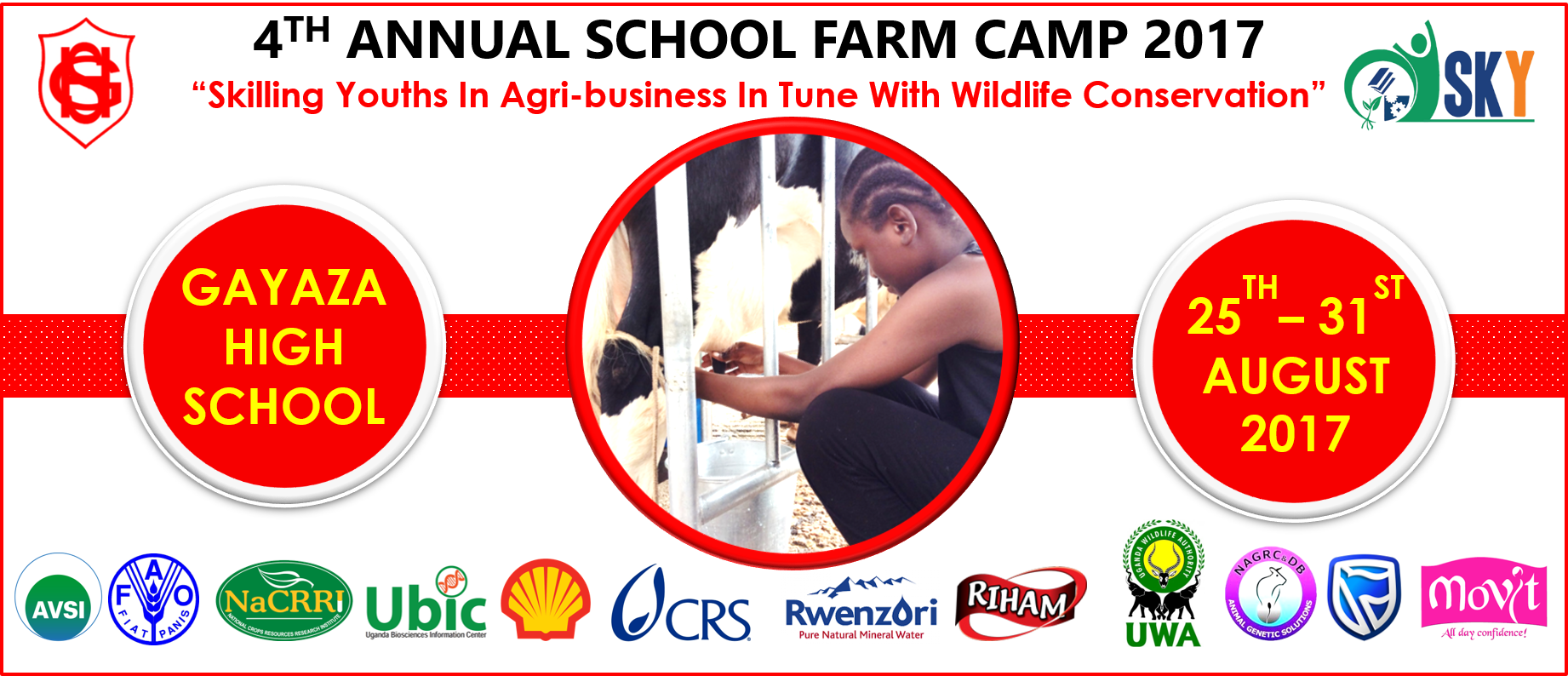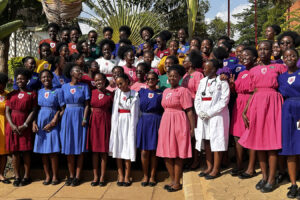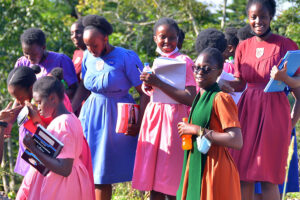
GHS Farm Camp 2017
EVENT TITLE: 2017 SCHOOL FARM CAMP
THEME: SKILLING YOUTH IN AGRI-BUSINESS INTUNE WITH WILDLIFE CONSERVATION
DATES OF EVENT: 25TH AUGUST – 31ST AUGUST 2017
VENUE: GAYAZA HIGH SCHOOL & MURCHISON FALLS NATIONAL PARK

About the 2017 Farm Camp:
The 4th Annual School Farm Camp took place between the 25th – 31st August 2017 at Gayaza High School. The camp brought together 400 students and 50 teachers from more than 35 schools across the country to live a life of an entrepreneurial farmer and grow their skills and interest in Agri-business. We introduced the youth and the teachers to the area and principles of Agribusiness in tune with Wildlife Conservation and interest them in developing business ideas that lead to the sustainability of our natural resources and communities. Our hope is that gradually we shall develop Youth leaders and Educators who will not only speak for and on behalf of Agribusiness but put conservation education at the fore front of whatever they do or cherish. It is very important that we not only discuss the available Agribusiness models and possible businesses but concern ourselves with the sustainability of our decisions.
Objectives of the Farm Camp:
- To introduce the youth in schools to scientific approaches to agriculture and motivate them to practice farming as an entrepreneurship venture while at school paying attention to the sustainability of our communities.
- To propose recommendations and develop action plans for integrating farming activities within the school curriculum areas as a strategy towards youth entrepreneurship.
- Introduce the youth and teachers to wildlife conservation education and enable them to find a balance between business and sustainability of our natural endowments as a country.
Target group:
400 Secondary school students, 50 teachers and 30 facilitators.
Unique features of the Farm Camp:
- Introducing the youth and teachers to crop-livestock integration so as to enhance food security and nutrition in schools and within small holder farms in the communities.
- Engaging teachers to develop action plans for integrating agribusiness activities within the school curriculum areas as a strategy towards youth entrepreneurship.
- Touring the national park and studying about the biodiversity systems and the role of human beings in protecting these for the sustainability of our communities.



